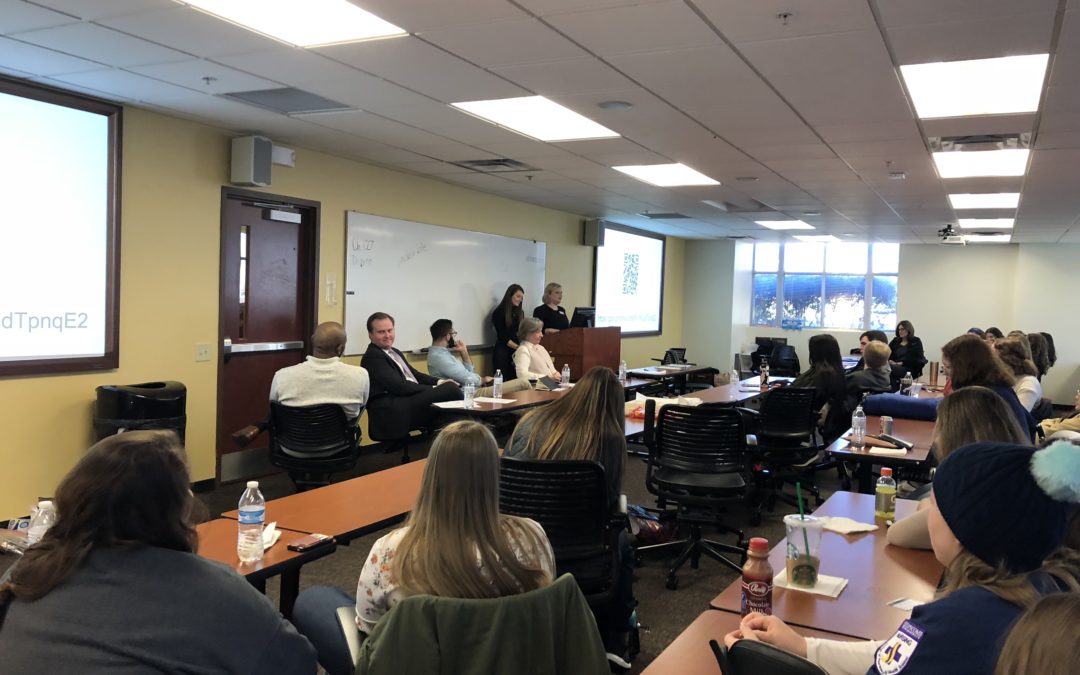Lipscomb University held three sessions on sexual health and spirituality during the first few weeks of the 2019 spring semester. This two-part article recaps the last two sessions.
Charissa Ricker covered the second session, and Carly Reams covered the third.
Second session
Lipscomb held a panel discussion on Jan. 24 during a breakout chapel to address students’ questions about sexual health and spirituality.
After a campus-wide survey about sexual health was sent out last semester, the Student Health Advisory Committee introduced a series on sexual health. Director of Health Services Erin Keckley spent the first session discussing the results of the survey.
The second session panel consisted of Keckley, Kathy Hargis (director of Risk Management and Title IX), Pieter Valk (counselor), Josh Roberts (dean of Student Development) and Prentice Ashford (dean of Office of Intercultural Development).
Students were able to submit questions anonymously for the panel to answer ranging from the different health services on campus to Lipscomb’s policies on sexual health.
“We believe that if you read the Bible, and you read Christ’s teachings, that sexuality is designed for the context of marriage,” Roberts said. “And so for that reason our policies expect that students who are not married refrain from sexual activity.”
The Health Center, the Counseling Center and the Title IX office are three places students can get help on-campus without having to worry about the consequences of Lipscomb’s policies.
Roberts stressed the complete confidentiality between those offices and the code of conduct and the disciplinary office.
Title IX and the amnesty clause were explained deeper by Hargis, who shared how students who have broken Lipscomb’s policies will receive amnesty in the event of a sexual assault investigation and while co-operating in a Title IX investigation.
“We want to get to the bottom of what happened,” Hargis said. “We take that amnesty clause very, very seriously. I don’t want that to be a deterrent for anyone involved in an incident.”
In the survey that was sent out, students expressed being wary of Lipscomb’s strict rules and the consequences of seeking help on campus, especially in the LGBT community. Valk, a gay, celibate Christian, addressed the hardships LGBT students faced.
“They perceive this campus to be a place where they can’t always share fully about their identity, their sexual identity and don’t know of a place where they can, as openly as their straight peers, seek out romantic relationships,” Valk said.
Valk also addressed the fear-based motivation of abstinence and the effects of purity culture in the church on women.
“What I heard growing up is that ‘men can’t help themselves, so it’s [a] woman’s job to keep people pure,'” Valk said. “If men have sex before marriage, they get a trophy; and if women have sex before marriage, ‘you are damaged goods,’ and we definitely need to throw that away.”
Keckley said she wants wants to build trust with students and expressed that if they are sexually active, they need to get tested — if not on campus, then somewhere else.
After chapel ended, students Addison Britton and Leslie Walker said they thought that some of the panel members didn’t answer the questions head-on but added they appreciated Valk’s honesty.
“Overall, I think that the counselor was really good about directly answering the question and getting his point across in a concise manner,” Britton said.
Walker agreed that Valk brought a unique perspective to the discussion but wished there was more time to discuss the different aspects of the topic.
“They handled the topics with care and obvious attention,” Walker said. “They all have different specialties, and I think that makes it difficult. Erin Keckley wanted to focus on the health side, and Josh Roberts was focusing on the discipline side, and I think we just didn’t have enough time to ask every question.”
Final session
The Sexual Health & Spirituality Chapel had its third and final meeting this past Thursday, with Ethos Church pastor Aaron Etheridge as its keynote speaker. Thursday’s chapel was a more lecture-based experience rather than a Q&A.
In addition to his pastoral position, Etheridge is also a therapist specializing in marriage counseling. He said he wanted to present himself not as a pastor figure, but rather as a man that has also been trying to figure out these questions most of his life.
Etheridge took on a main goal of answering the question: is it possible to handle sex and sexuality in a way that is honoring to God, a blessing to the culture around you and also deeply fulfilling?
“I believe that it is possible,” Etheridge said. “This is the goal, but I want to point out that anytime we start talking about sex, especially in connection to an environment that is based in faith or religion, we all come with a broad range of emotion.”
He added that we are living in a culture with so much information at our fingertips, and that we tend to ask the wrong questions when it comes to this subject.
He continued to discuss how the church tends to make the topic something that should not be talked about, and that if someone finds himself asking these questions, they are usually taught to feel shameful. He said he wanted to be a part of this chapel to help change the stigma in religious environments.
After the chapel, student Hannah Ireland said she thought it was good Lipscomb was offering an open discussion on sexual health through the chapels.
“It was an interesting topic that he discussed and nice to have the Bible incorporated in a taboo topic at our university,” Ireland said.
Photo by Charissa Ricker

